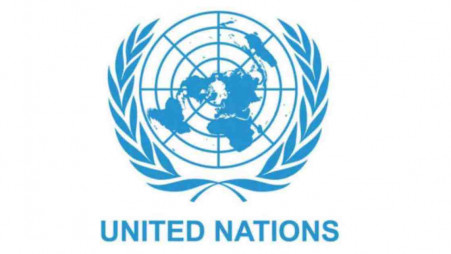Water crisis threaten world peace; 2.2 billion still live without access to safe drinking water: UN Report
"As water stress increases, so do the risks of local or regional conflict. UNESCO's message is clear: if we want to preserve peace, we must act swiftly not only to safeguard water resources but also to enhance regional and global cooperation in this area," said Audrey Azoulay, UNESCO Director-General

The United Nations World Water Development Report 2024, published by UNESCO on behalf of UN-Water, highlights that tensions over water are exacerbating conflicts worldwide.
To preserve peace, states must boost international cooperation and transboundary agreements, it said.
"As water stress increases, so do the risks of local or regional conflict. UNESCO's message is clear: if we want to preserve peace, we must act swiftly not only to safeguard water resources but also to enhance regional and global cooperation in this area," said Audrey Azoulay, UNESCO Director-General.
"Water, when managed sustainably and equitably, can be a source of peace and prosperity. It is also the literal lifeblood of agriculture, the major socio-economic driver for billions of people," said Alvaro Lario, President of the International Fund for Agricultural Development (IFAD), and Chair of UN-Water.
According to the latest report published by UNESCO, on behalf of UN-Water, today 2.2 billion people still live without access to safe drinking water and 3.5 billion lack access to safely managed sanitation.
The UN goal of ensuring this access for all by 2030 is therefore far from being attained, and there is reason to fear that these inequalities may continue to rise.
Between 2002 and 2021 droughts affected more than 1.4 billion people.
As of 2022, roughly half of the world's population experienced severe water scarcity for at least part of the year, while one quarter faced 'extremely high' levels of water stress, using over 80% of their annual renewable freshwater supply. Climate change is projected to increase the frequency and severity of these phenomena, with acute risks for social stability.
The first impact is the deterioration of living conditions, leading to heightened food insecurity and health risks.
Water scarcity also has consequences on social development, particularly for girls and women. In many rural areas, they are the primary water collectors, spending up to several hours a day on this task.
Reduced access to water supply exacerbates this burden, which undermines women's education, economic participation and safety.
This may also contribute to the higher secondary school dropout rate among girls compared to boys.
The lack of water security has also been identified as one of the drivers of migration. This displacement can, in turn, contribute to water insecurity by placing added strain on water systems and resources in settlement locations, thereby fuelling social tensions.
A study conducted in Somalia indicates a 200% increase in gender-based violence against a group of displaced people.
This water scarcity can increase the risk of conflict. In the Sahel region, wetland degradation - often due to ill-advised water development projects - has exacerbated local disputes over access to water and productive land, causing tensions.
While approximately 40% of the world's population lives in transboundary river and lake basins, only a fifth of countries have cross border agreements to jointly manage these shared resources equitably.
Many transboundary basins are already located in areas marked by current or past interstate tensions.
In the Arab region, seven countries were in conflict in 2021 - some dating back many years -which has had wide-ranging implications for water supply, infrastructure, and potential cooperation on water-related issues.
Africa remains especially vulnerable to interstate tensions relating to water: 19 out of 22 states studied suffer from water scarcity, and two-thirds of the continent's freshwater resources are transboundary. Of the 106 transboundary aquifers mapped in Africa, interstate cooperation has only been formalised in seven.
In this context, cooperation on transboundary water management appears to be a powerful lever for maintaining peace.
By creating conditions for regular dialogue between all parties and instituting the necessary legal frameworks, this cooperation has the potential to resolve most disputes relating to water, and therefore prevent the emergence or exacerbation of wider-ranging conflicts.
The Framework Agreement on the Sava River Basin (FASRB), signed in 2002 by Bosnia and Herzegovina, Croatia, Serbia and Slovenia, was the first multilateral, development-oriented agreement in South-East Europe.
It has successfully laid the groundwork for sustainable water management.
Two decades after its adoption, it has become a key driver of stability in the region, and now serves as an example of best practice for other regions of the world.
The decline in volume of Lake Chad - which has decreased in size by 90% over 60 years - has led to a broad range of economic and security challenges in the region. Yet in recent years, Cameroon, Chad, the Central African Republic, Libya, Niger and Nigeria have given a new impetus to the Lake Chad Basin Commission (LCBC).
LCBC's mandate has expanded to ensure the most efficient use of the basin's waters, coordinate local development, and prevent the emergence of disputes that might arise among these countries and local communities.
LCBC is today the most appropriate institution for addressing the specific needs of the basin, including socio-economic development and security issues.
These two examples highlight the fact that, even in complex situations, states have the means to enact policies around access to water and shared resource management that are both fair and equitable thanks to international cooperation and the support of the United Nations system.



 Keep updated, follow The Business Standard's Google news channel
Keep updated, follow The Business Standard's Google news channel
















